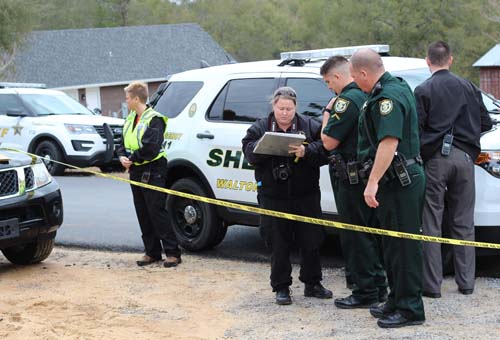


Join us for an intensive training focused on understanding and building relationships between the forensic pathologist, homicide investigator, and prosecutor in successfully investigating and prosecuting child homicide cases. Learn autopsy protocols, forensic essentials, and the criticality of determining the cause and manner of death. Understand the unique aspects of investigating a child homicide including interviewing and interrogation, suspect pool development and the role and importance of the prosecutor in gaining appropriate convictions.

Explore investigative strategies that address the relationship between child sexual abuse and child sexual abuse materials (child pornography) to supplement an investigation and corroborate victim statements. Gather new tools and resources for the most comprehensive case outcomes.

In the modern cyber-world, almost all criminal investigations have an online aspect that can be used to further investigations and more quickly solve otherwise difficult cases. Join us to examine open source online intelligence/information and learn how to leverage free platforms, databases, and web applications to strengthen criminal cases. Uncover little known facts and techniques to optimize results using online search engines and online internet resources, which will support your investigations and prosecutions. Learn how to complete and serve search warrants for a variety of electronic information and databases to further all types of investigations. Develop new skill sets to establish contacts and open-source intelligence networks to provide ongoing criminal and threat intelligence in your jurisdiction.

Explore and discuss the application of Forensic Genetic Genealogy (FGG) and the ways it aids in investigations. Techniques instructed will include tips in using genealogy to help establish the identities of cold case suspects and assist with identifying human remains. Instruction is provided by experienced investigators who have gained expert knowledge in their application of forensic genetic genealogy through real-life cases. Discuss topics including forensic genealogy techniques and investigative strategies for developing leads and information, as well as working with private labs and other related resources.

Gain an introduction into the psychology, or mindset, of those that commit sexually motivated crimes. Learn about sex offender typologies and patterns of behavior. Explore the relationship between paraphilia such as exhibitionism, voyeurism, and fetishism and criminal acts. Review and dissect real case examples to gain insight into offender modus operandi. Knowledge obtained can be applied during interview and interrogation to help resolve sexually motivated cases.

Examine suspicious death case studies based on the experiences of a homicide detective and forensic pathologist. Identify key scene findings, review actual cases and correlate these findings to the autopsy results. This course will discuss improving case outcomes through strong relationships between investigating agencies and the medical examiner’s office. Students will gain appreciation of how unique case features can affect the direction of the investigation. The ultimate resolution of each case examined will be considered and applied lessons learned are shared during the course.

Learn basic techniques and strategies to enhance the likelihood of obtaining information from possible victims of child sex trafficking. Compare and contrast typical child sexual abuse cases with child sex trafficking (CST) cases and address the different points of entry into the criminal justice and welfare system for CST victims. Understand various disciplines' roles and responsibilities and how they can contribute to a positive outcome of the CST case. Examine question strategy, interview dynamics, language use, and interview suggestions. Discuss the business model of child sex trafficking as it relates to a variety of crimes, including the use of child sexual abuse material (CSAM).

Understand, recognize, and investigate cases involving missing and abducted children. Determine scope and scale issues and how to manage a missing or abducted child case. Explore crime scene evidence collection and processing, profiling suspects, and legal issues, including search warrants and interrogation related to a missing or abducted child.

This intensive three-day training program is designed to provide advanced strategies for effectively investigating, supporting and prosecuting domestic violence cases. Participants will gain a deeper understanding of the complexities of domestic violence-related cases, including working with non-cooperative victims, assessing risk, and gathering critical evidence from the start. The course emphasizes practical skills for conducting investigations, victim support, and courtroom preparation. Through expert-led discussions and case studies, attendees will leave with actionable tools to enhance their approach and improve outcomes in domestic violence related cases.

This webinar will provide information for all stakeholders to further mass fatality incidents, human identification cases, and certain missing person investigations. The webinar and subsequent conference plenary session will focus on Rapid DNA technology as an important forensic tool that has significantly influenced the process of addressing mass fatality incidents, and other similar types of investigations. The webinar will be a mix of lecture and case study with briefs on the Palisades and Maui Fire cases. Also presented will be how technology can further Missing/Unidentified Person cases, and provide a template for how detective and medical examiners/coroners can work together on these types of cases. This webinar will briefly cover the different ways agencies use Rapid DNA and a new innovative program from ANDE for agencies that want to use it, but do not currently own the technology.
